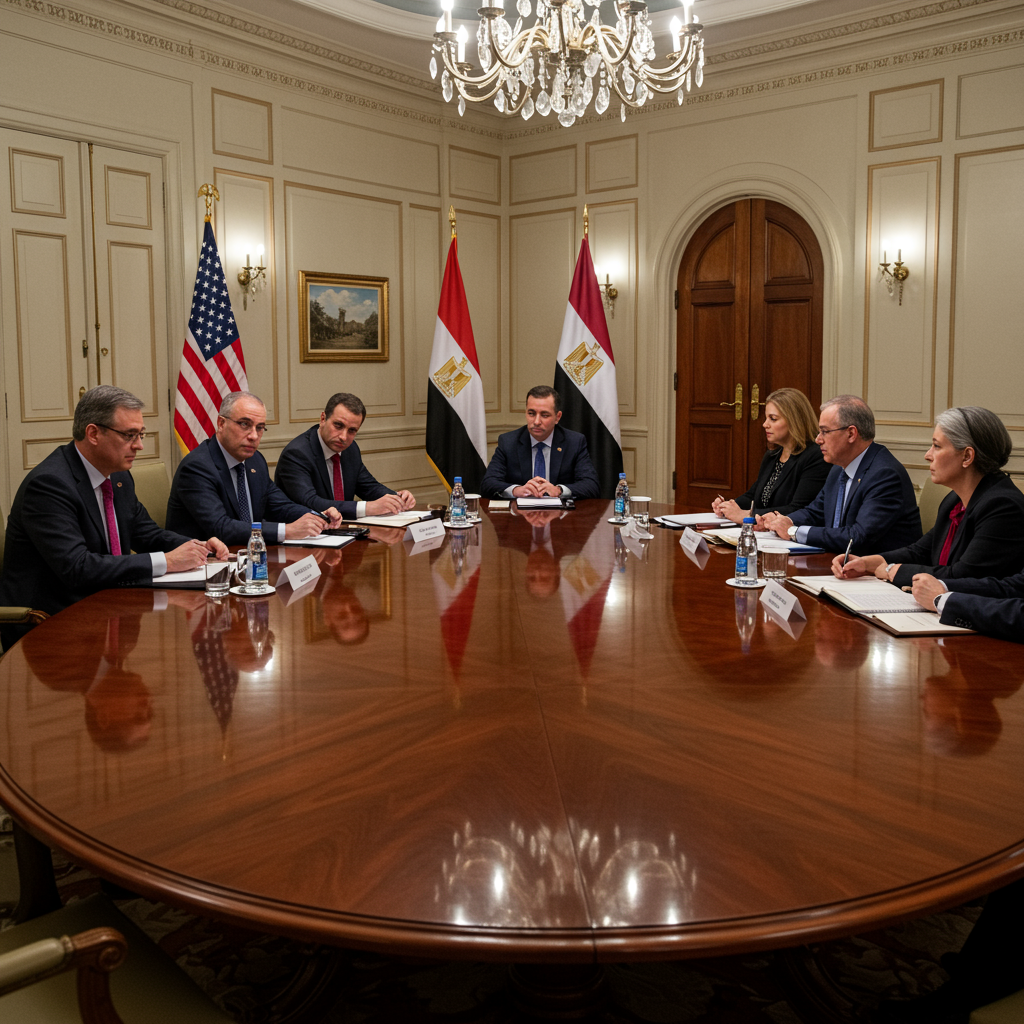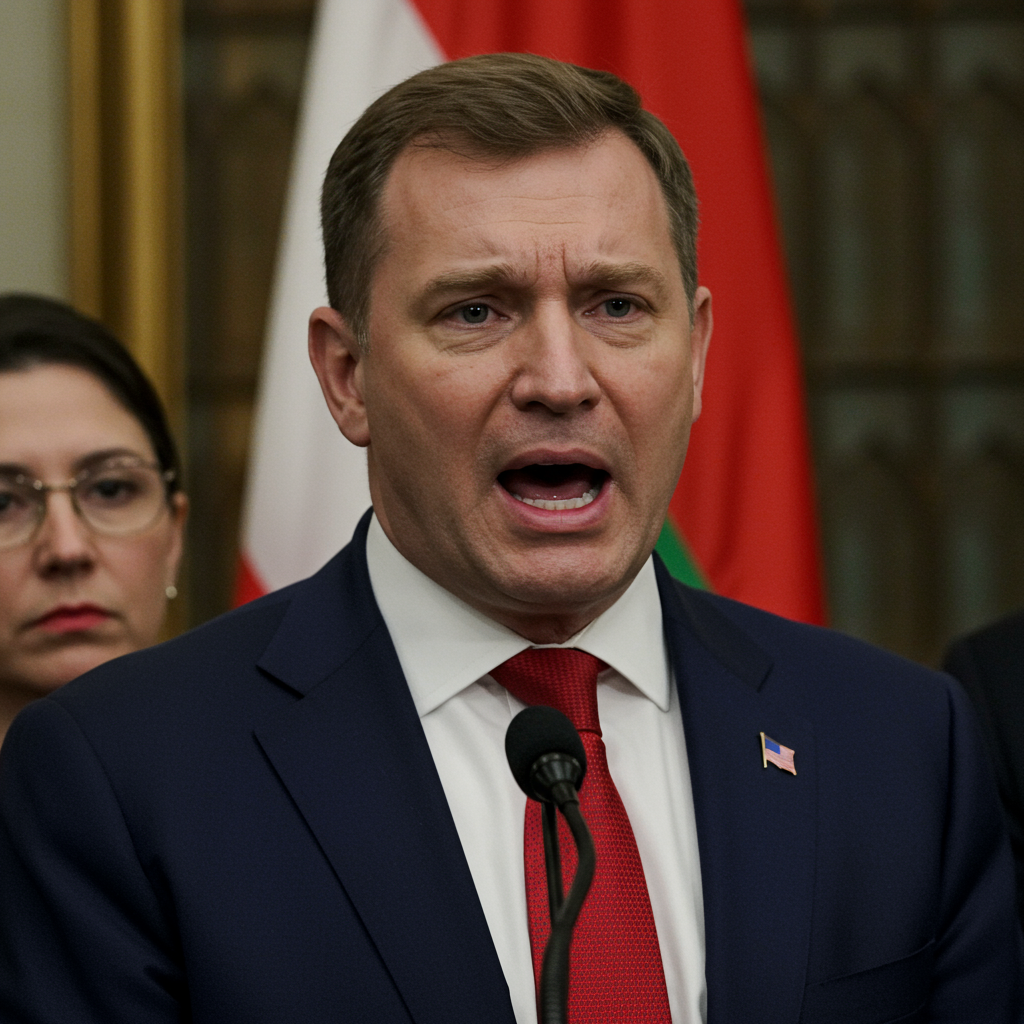Hungary’s government recently announced the results of a public consultation, claiming overwhelming opposition to Ukraine joining the European Union. According to official figures released in late June 2025, a staggering 95% of participants in the nationwide poll reportedly voted against Kyiv’s EU membership bid. However, this consultation, heavily promoted by Prime Minister Viktor Orban’s administration, faces significant questions about its legitimacy and methodology, drawing sharp criticism from opponents and observers alike. The timing of the announcement, just before a critical European Council summit, appears strategic, positioning Budapest to potentially leverage the results to influence future EU decisions regarding Ukraine.
Government Claims Overwhelming Opposition
Hungarian officials presented the consultation results on June 26, 2025. They stated that approximately 2.28 million people took part in the survey. This figure represents around 29% of the electorate that participated in the 2024 European Parliament elections. Of those who responded, the government asserted that 95% rejected ukraine’s accession to the EU. Only a small fraction, 5%, reportedly supported the idea. This outcome, if accepted at face value, would suggest widespread public sentiment in Hungary is strongly against Ukraine integrating into the European bloc.
Consultation Process Faces Credibility Challenges
Despite the government’s presentation of the results, the consultation process has attracted considerable controversy. Hungarian media outlets, including Telex, reported potential vulnerabilities in the system. Early testing allegedly showed that individuals might be able to cast multiple votes using different email addresses. This raised immediate concerns about the accuracy and integrity of the electronic voting component.
Government spokesperson Gergely Gulyas addressed some of these concerns. He claimed that paper ballots were properly notarized and considered secure. He also mentioned that steps were being taken to verify electronic votes, which accounted for roughly 10% of the total participation. However, Gulyas could not confirm whether the system was capable of detecting if someone voted both electronically and by mail. This lack of clarity fueled further skepticism regarding the reliability of the results.
Low Turnout and Propaganda Accusations
Beyond the potential for manipulation, the consultation’s turnout itself became a point of contention. The participation rate of 29% is notably low, especially when compared to general elections or even previous, similar consultations. Opposition leader Peter Magyar strongly criticized the exercise. On June 22, he publicly dismissed the consultation as little more than a “government propaganda campaign.” Magyar cited internal data reportedly from Magyar Posta (the Hungarian postal service) suggesting that only a small percentage of mailed ballots – between 3% and 7% – were actually returned. He described the turnout as the lowest recorded for any such consultation conducted by the government.
Since 2010, the Orban government has frequently utilized these non-binding “national consultations.” These are typically mail-in or online surveys featuring leading questions designed to elicit answers that support existing government policies or desired narratives. Past campaigns have addressed topics like LGBTQ rights and EU migration policies. For instance, a 2023 consultation included a question about alleged EU plans to create “migrant ghettos” in Hungary. That survey saw 99% opposition with turnout below 20%. Critics argue these consultations are not genuine public opinion polls but rather tools to generate a perceived mandate for government actions and frame public debate.
Orban’s Long-Standing Opposition to Ukraine’s EU Bid
Prime Minister Orban’s opposition to Ukraine’s EU membership is not new; he has voiced it repeatedly. In April 2025, he publicly showcased his personal vote against Ukraine’s accession in the consultation. Sharing photos of his ballot marked “against,” he reinforced his stance. Earlier in the year, Orban had issued stark warnings, suggesting that allowing Kyiv to join the EU would effectively “destroy” Hungary, though he did not fully elaborate on this claim.
Orban has maintained a complex relationship with both the EU and Russia. Often seen as the EU’s most sympathetic leader towards Moscow, he has taken actions perceived as hindering Ukraine’s efforts. These include delaying or blocking EU military aid packages to Kyiv. He also maintains close personal ties with Russian President Vladimir Putin. Furthermore, Orban’s rhetoric has sometimes mirrored talking points used by the Kremlin regarding the conflict in Ukraine.
Implications for Ukraine’s EU Path
Ukraine formally applied for European Union membership shortly after Russia launched its full-scale invasion in February 2022. The country was granted candidate status relatively quickly, within months of its application. Progressing towards full membership involves a complex process of negotiations and reforms across various chapters of EU law. As a member state, Hungary holds veto power over key stages of this process, including the opening and closing of negotiation chapters and ultimately, the final accession treaty.
The release of the consultation results strategically timed before the European Council summit suggests Orban intends to use the purported outcome to influence discussions and potentially justify future obstruction of Ukraine’s integration efforts. Despite the low turnout and widespread allegations of flaws in the process, the government is expected to cite the 95% figure as evidence of strong public will against Ukraine’s membership.
Hungary’s opposition parties and many Western governments view Orban’s administration with increasing concern. They point to actions that they argue have eroded democratic norms within the country. These include tightening government control over media, undermining judicial independence, and enacting electoral laws that opposition critics claim favor the ruling party. The handling and promotion of the national consultation are seen by these critics as another example of the government employing state resources for political messaging and solidifying its power base.
The consultation results, regardless of their credibility, provide Orban with a domestic talking point and potential leverage within EU negotiations. The path for Ukraine’s EU accession remains challenging, and Hungary’s position, underscored by the disputed consultation, continues to be a significant hurdle. The focus now shifts to how EU leaders will respond to Hungary’s stance and the controversial results presented by Budapest at upcoming meetings.
Frequently Asked Questions
What did Hungary’s recent national consultation claim regarding Ukraine’s EU membership?
Hungary’s government announced on June 26, 2025, that a national consultation showed overwhelming public opposition to Ukraine joining the European Union. According to the government, 95% of participants in the poll voted against Ukraine’s accession bid. This result was presented based on responses from approximately 2.28 million people across Hungary.
Why is Hungary’s stance on Ukraine’s EU membership significant?
As a full member state of the European Union, Hungary holds veto power over key steps in the accession process. This means Budapest can potentially block negotiations and the final decision on whether Ukraine can join the bloc. Prime Minister Viktor Orban’s consistent opposition, reinforced by the consultation results, makes Hungary a significant potential obstacle to Ukraine’s integration into the EU.
What criticisms have been raised about the credibility of Hungary’s consultation?
Critics, including Hungarian opposition figures and media, have questioned the consultation’s reliability due to several factors. Concerns include potential manipulation allowing multiple votes, a relatively low turnout of around 29% compared to other elections, and accusations that the survey used leading questions designed to elicit specific responses favorable to the government’s position. Opposition figures have labeled it a “government propaganda campaign.”
Word Count Check: 1108 words


